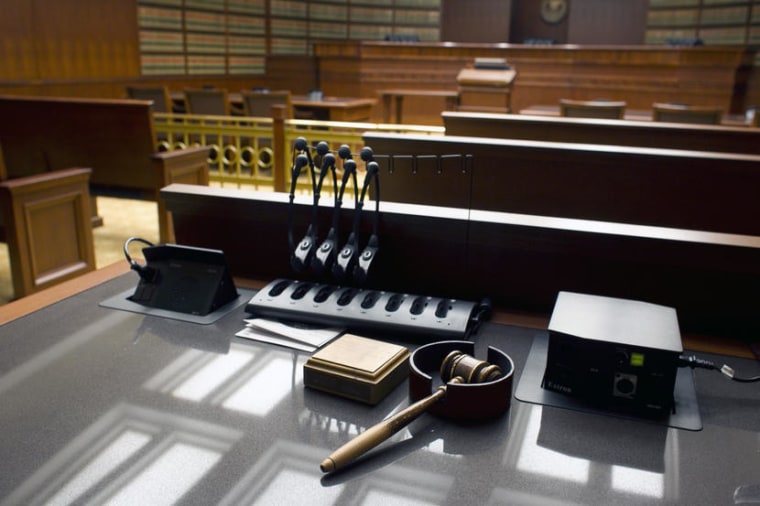From a progressive perspective, it's generally best to break up Donald Trump's judicial nominees into different categories. Some are "disappointing." Others are "offensive."
A few, however, fall into the "you've-got-to-be-kidding-me" grouping. Take Justin Walker, for example.
By most measures, Walker is a cartoonish caricature of the kind of conservative that Republicans are desperate to put on the federal bench. When the Senate's GOP majority confirmed him to a district court seat last year, he was a 37-year-old professor who'd never tried a case. Walker was, however, a longtime ally of Senate Majority Leader Mitch McConnell (R-Ky.) and as a former as speechwriter for Donald Rumsfeld. Just as importantly, Walker clerked for Brett Kavanaugh, and served as one of his most ardent champions during the Supreme Court justice's confirmation fight.
The American Bar Association deemed the young conservative "not qualified." Senate Republicans didn't care.
Earlier this month, as Walker was just getting settled in as a district court judge in Kentucky, Republicans decided it was time for him to come back to the nation's capital -- as a nominee for the powerful U.S. Court of Appeals for the D.C. Circuit, widely recognized as the nation's second most powerful federal bench.
It's a tough nomination to defend. Walker is not qualified; he's made little effort to hide his partisan zeal; and he hasn't exactly proven himself as a great jurist during his extraordinarily brief tenure as a district court judge.
Opponents of his nomination can take at least some solace in knowing that Walker can't be rushed onto the appellate bench too quickly, right? It's not like Senate Republicans are going to prioritize his confirmation during a deadly pandemic, right?
Wrong. Politico reported yesterday:
Senate Republicans are pushing for a swift return to confirming judicial nominees next week. But Democrats are trying to pump the brakes. Senate Judiciary Chairman Lindsey Graham (R-S.C.) is eyeing a confirmation hearing for May 6 for Justin Walker, President Donald Trump's nominee for the powerful D.C. Court of Appeals and Senate Majority Leader Mitch McConnell's protege, according to Senate aides. The confirmation hearing would be two days after the Senate is scheduled to return from an extended recess.
Democratic members of the Senate Judiciary Committee wrote to Chairman Lindsey Graham (R-S.C.) yesterday, urging him to focus on issues related to the coronavirus crisis, rather than prioritizing an unqualified White House nominee.
It's hardly an unreasonable recommendation. As Jennifer Bendery explained yesterday, the Senate Judiciary Committee could, at least in theory, turn their focus to "the needs of state and local law enforcement on the front lines of the pandemic, the health and safety of corrections staff and incarcerated people, changes in immigration policy tied to the pandemic or the spike in hate crimes against the Asian American community."
I would not, however, recommend that anyone on the left get their hopes up.
In a press statement this week, Mitch McConnell said he'd bring his chamber back into session next week and reminded his colleagues, "The Senate must focus on concrete steps to strengthen our response to this complex crisis. We cannot get distracted by pre-existing partisan wish-lists.... This crisis has every part of our society in dire need of stability, clarity, and certainty."
The GOP leader didn't mention our society's dire need of 30-something far-right judges, but it's apparently on Senate Republicans' minds.
